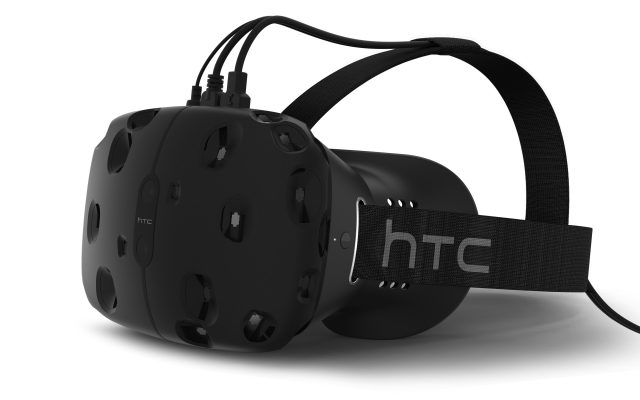
PARIS—While waiting to see what HTC had to show at this year's Paris Games Week, I got into an interesting conversation with a good PR friend of mine (not from HTC, I might add) over the pros and cons of virtual reality. He argued that after three years of waiting around for VR headsets to see a consumer release—during which time the press has written endless articles about the latest and greatest VR experience that no one can actually try yet—everyone's burned out on the technology before it's even had a chance to prove its worth. While I don't entirely agree with him, I can see his point.
Three years is an insanely long time in tech. Technology that was once new, exciting, and potentially game-changing can quickly become passé. That's not to say VR can't still be those things, but beyond strapping on their own unit, consumers (or early adopters/enthusiasts at least) know everything there is to know about VR at this point. They know how the technology works, what kind of experiences they might have, and the pros and cons of each headset. They probably even know which one they're going to buy.
So as my friend pointed out, the worry is that when the time comes consumers won't buy a headset at all. Why bother after three years of endless and unrewarding buzz about the latest and greatest bit of VR tech to emerge from Facebook, or Sony, or HTC? Why bother after being constantly told that yes, this is a first-generation product, and no, it probably won't change the world like the iPhone did? Tech manufacturers are often given a hard time for announcing a product and then waiting upwards of six months before they actually release it. Oculus has taken over three years.
But I'd argue that Oculus's hand was forced. The company had to launch early to get people to understand what VR can be and to counteract the impressions left by its shockingly bad '80s counterpart. I'd also argue that while people might well be burned out on endless VR-related write-ups, when the time comes and VR finally hits the high street, they'll be just as excited as they were when they first saw that Oculus Kickstarter campaign video three years ago.
So I won't bore you with the fact that yes, HTC Vive's full-room VR tech with its positional tracking and odd motion controller is hugely impractical, yet hugely impressive. Or I won't mention that picking up a phone, walking into a lift, and then diving onto the floor to avoid being shot in the head by snipers felt as natural a set of actions as they do in real-life (not that someone tries to shoot me in the head that often). I'll leave out the fact that during a demo made to promote the latest Paranormal Activity horror film, I was scared witless by some of the finest jump scares I've ever experienced.
Instead, I'll simply say that while we're still very much mostly stuck with demos rather than actual games, the HTC Vive hints at brilliance. It's arguably the most immersive VR experience around—but you knew that already, right?
reader comments
143